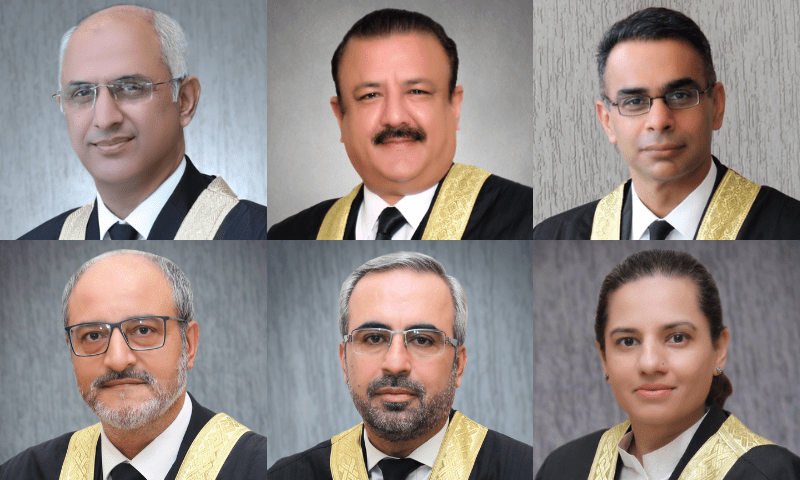The Islamabad High Court Bar Association (IHCBA) filed a petition in the Supreme Court (SC) to probe the allegations made by six IHC judges against interference in judicial affairs by the country’s intelligence apparatus.
On March 25, six IHC judges — out of a total strength of eight — wrote a startling letter to the Supreme Judicial Council (SJC) members, regarding attempts to pressure judges through abduction and torture of their relatives as well as secret surveillance inside their homes.
The letter was signed by judges Mohsin Akhtar Kayani, Tariq Mehmood Jahangiri, Babar Sattar, Sardar Ejaz Ishaq Khan, Arbab Muhammad Tahir and Saman Rafat Imtiaz.A day later, calls had emerged from various quarters for a probe into the investigation, amid which Chief Justice of Pakistan (CJP) Qazi Faez Isa summoned a full court meeting of the Supreme Court’s judges.
After a meeting between CJP Isa and Prime Minister Shehbaz Sharif on March 28, the duo decided to form a commission to investigate the concerns of interference in judicial affairs following the cabinet’s approval. However, former CJP Tassaduq Hussain Jillani, who was appointed to head the commission, subsequently recused himself from the matter, leading to the apex court taking a suo motu notice of the issue.
On April 3, CJP Isa asserted that “any attack” on the judiciary’s independence would not be tolerated as he hinted at forming a full court to hear a suo motu case pertaining to allegations of interference in judicial affairs.
In a petition filed today, a copy of which is available with Dawn.com, the IHCBA called for a probe into the letter.
It recommended that upon completion of such a probe, the apex court “pass appropriate orders to affix liability for those who undermined independence of judiciary by resort to all manner of interference in the judicial work of the judges concerned.”
The petition also called upon the top court to delineate any matters from the IHC letter which fell within the SJC’s exclusive jurisdiction and “if deemed appropriate, make recommendations for due consideration of such matters by the SJC”.
The association urged the court to not restrict itself to the issues raised in the letter but also guide the way forward to eliminate the “possibility of vertical interference and collateral interference”. It added that the petition be attached to the suo motu case to “serve the ends of justice”.


